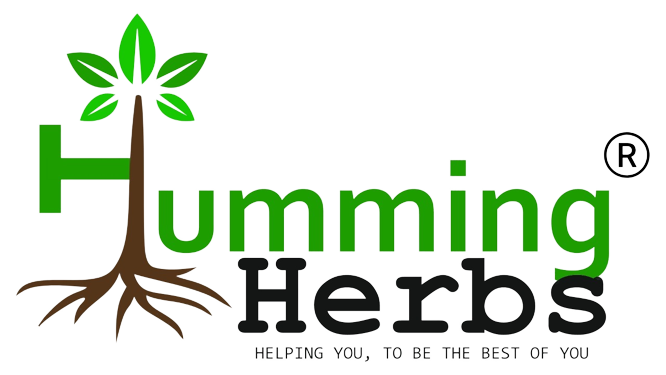- Your cart is empty
- Continue shopping

In the pursuit of optimal health, many have turned to resveratrol, a polyphenol found in red grapes and berries, celebrated for its antioxidant properties and potential health benefits. However, recent findings challenging the efficacy of a diet rich in resveratrol have sparked a reevaluation of its role in promoting well-being. As individuals seek alternatives, resveratrol supplements, along with complementary compounds like spermidine and fisetin, are gaining attention. This article explores the evolving landscape of antioxidant supplements, with a focus on resveratrol and related offerings, including Humming Herbs’ Resveratrol Supplement.
The Resveratrol Conundrum
1. Anticipated Health Boost
Resveratrol gained prominence for its potential to offer a myriad of health benefits, ranging from antioxidant protection to cardiovascular support and even longevity promotion. These expectations were rooted in both scientific studies and the compound’s presence in certain fruits, making it a sought-after component in the quest for well-being.
2. Recent Disappointment related to dietary intake of Resveratrol
AS Resveratrol, a polyphenol found in red grapes, berries, and certain plants, has long been celebrated for its potential health benefits, particularly its antioxidant properties and its purported role in promoting cardiovascular health and longevity. However, recent research has thrown a curveball, challenging the previously held belief that a diet rich in resveratrol provides significant health advantages. This article explores the findings of this disappointing discovery and its implications for our understanding of resveratrol’s role in human health.
The evolving understanding of resveratrol’s bioavailability and potential limitations has led to a search for alternative strategies to harness the power of antioxidants.
Despite the promising indications from earlier research, a recent study has cast doubt on the health-boosting claims associated with a resveratrol-rich diet.
- Study Design
The study, conducted over an extended period, involved participants who consumed a diet rich in resveratrol. Researchers meticulously monitored various health markers and outcomes to assess the impact of resveratrol on cardiovascular health, inflammation, and overall well-being.
- Surprising Results
Contrary to expectations, the study found no significant improvements in the health markers of participants who followed a resveratrol-rich diet compared to those who did not. This unexpected outcome challenges the conventional wisdom surrounding the health benefits of resveratrol.
- Implications and Considerations
1. Bioavailability Challenges
One potential explanation for the disappointing results could be the limited bioavailability of resveratrol. The body’s ability to absorb and utilize resveratrol from dietary sources may be insufficient to confer the expected health benefits.
2. Singular Focus vs. Holistic Lifestyle
The study raises questions about the wisdom of placing excessive emphasis on individual dietary components for health benefits. It underscores the importance of considering a holistic approach to wellness, encompassing a balanced diet, regular exercise, and other lifestyle factors.
3. Reevaluating Resveratrol’s Role
While this study challenges the notion of resveratrol as a standalone health-boosting compound, it does not negate the potential benefits of consuming a diet rich in fruits and vegetables, which contain a myriad of other bioactive compounds with proven health advantages.
The Emergence of Antioxidant Supplements
1. Resveratrol Supplements
In response to the shifting perceptions around resveratrol-rich diets, resveratrol supplements have become a popular alternative. These supplements, like the one offered by Humming Herbs provide a concentrated and easily absorbable form of resveratrol, potentially overcoming the bioavailability challenges associated with dietary sources.
2. Spermidine Supplements
Spermidine, a polyamine compound found in various foods, has gained attention for its potential anti-aging effects. Spermidine supplements, often formulated to support cellular autophagy and renewal, offer another dimension to the antioxidant landscape. The interplay between spermidine and resveratrol may provide a synergistic approach to cellular health.
3. Fisetin Supplements
Fisetin, a flavonoid present in fruits and vegetables, is increasingly recognized for its antioxidant and anti-inflammatory properties. Fisetin supplements, like those available in the market, contribute to the diverse array of options individuals can consider as part of their antioxidant regimen. Humming Herb’s Fisetin is something you can explore.
Unlocking the Potential: Best Antioxidant Capsules

1. Comprehensive Formulas
As individuals seek the best antioxidant capsules, they are drawn to formulations that go beyond singular compounds. Comprehensive formulas, incorporating resveratrol, spermidine, fisetin, and other synergistic ingredients, offer a holistic approach to antioxidant supplementation.
2. Transparent Quality Assurance
Trustworthy brands, such as Humming Herbs, prioritize transparency and quality assurance. Third-party testing, clear labeling, and a commitment to purity ensure that individuals can confidently integrate antioxidant capsules into their wellness routine.
3. Personalized Approach
Recognizing that individual responses to supplements may vary, a personalized approach is essential. Consulting with healthcare professionals can help tailor antioxidant supplementation to individual health goals and considerations.
Conclusion
In the wake of the evolving narrative surrounding resveratrol, individuals are navigating a landscape of antioxidant supplements that extends beyond a singular focus. Resveratrol supplements, spermidine offerings, and fisetin capsules provide a diverse array of choices for those seeking to harness the power of antioxidants. As the quest for well-being continues, the synergy between these compounds and the exploration of comprehensive antioxidant formulas redefine the approach to supporting cellular health and longevity.
